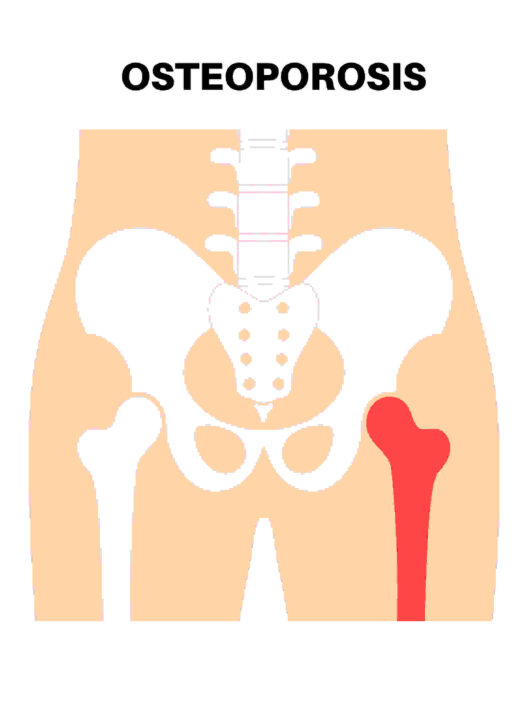Is your PCOS bothering you? Here is how you can treat your PCOS with diet and lifestyle interventions.
What is PCOS?
Polycystic Ovary Syndrome (PCOS) is a hormonal disorder. This condition is due to the excess production of male hormones (Androgen) which leads to irregular menstruation, excessive hair growth, infertility, and weight gain. The term is very deceiving as not all women with PCOS have cystic ovaries but, some women have polycystic ovaries even without PCOS.
How is PCOS affected due to insulin resistance?
When there is a spike in your blood glucose levels, insulin comes to the rescue by working as a key in unlocking the cell doors to intake excess glucose from the bloodstream into the cells and utilize the glucose for energy. When this key is not capable of opening the cell doors, it is called insulin resistance after which the body sends more insulin to force the cell doors open leading to Hyperinsulinemia. This excess secretion in the body can further cause the secretion of excess androgen than usual in the female bodies, inflammation, and many other symptoms as experienced during PCOS. The primary aim of PCOS treatment, therefore, stresses more on improving insulin resistance in the body.
Symptoms of PCOS
Alopecia – Hair loss on top of the head
Hirsutism – hair growth like males on the face, chest, back, and upper arms.
Carbohydrate cravings
Absent, irregular periods, or can be heavy.
Acne
Infertility
Weight gain especially in the pelvic region and lower abdomen.
Dark skin around elbows, neck, underarms, knees – Acanthosis Nigricans.
Dietary Guidelines for managing PCOS – PCOS diet
The available research shows that although diet could improve PCOS, no one precise dietary pattern could fit all those who are facing PCOS. The frequent changes in dietary patterns could be tiresome, so a small shift in your dietary pattern through these basic guidelines would be of great help.
a. Release yourself from your Diet Mentality
Your mind keeps restricting various types of foods that would be useful just for a short period of time. When dealing with PCOS diet, as it is a hormonal condition, it would require a life-long shift in diet habits which will be essential to control your metabolic and reproductive functions. All the changes are not expected to be done overnight. Consistent and steady changes into lifelong healthy habits are more suitable, and this in turn will support your lifestyle and health.
b. Quality of your Meal is the Focus rather than Quantity
You must first estimate the requirements of each nutrient for your body in order to imbibe proper dietary habits. High-quality foods will provide all the necessary nutrients for your body in a much-reduced quantity. This will further help you in controlling your portion sizes for each meal even without the use of calculators. Consumption of a vegetable fruit-based-based diet will cut down on calories and imposes a positive effect on weight management. When you start reducing outside meals and start consuming more home-cooked meals, it will be overwhelming, but it could carry you a long way. The trick to do that is by starting small and consistent changes which can make a life-long impact.
c. Don’t Restrict Carbohydrates
PCOS management through diet is effective when almost 40% to 52% of your diet is from carbohydrates. More than the total carbohydrates, its quality is what matters. Restricting processed carbohydrates, reducing refined sources, and increasing whole grains are more advisable. Complex carbohydrates like whole-wheat bread, brown rice, whole-wheat pasta, quinoa, and barley are the best sources and they are efficient for weight loss as they are richly packed with fiber.
d. Consume Whole Foods
Consuming natural and whole foods is recommended for the PCOS diet as they are nutrient-rich and their bioavailability for absorption is also enhanced when compared to processed and refined foods. This befriends hormones relating to sugar balance, appetite regulation, and stress in your body.
e. Consume the Rainbow- Focus on 3 colors every day
VIBGYOR in its reverse form is expanded as Red, Orange, Yellow, Green, Blue, Indigo, and Violet as we all know. Eat fruits and vegetables in these colors as they contain important nutrients such as phytonutrients which are anti-inflammatory and powerful disease-preventing, non-energy nutrient sources. PCOS diet comprises of a plate with a minimum of 3-4 colors every day and includes all the 7-color fruits and vegetables at least once in the entire week.

Balanced Meal Template for PCOS diet
You can construct your meals with more confidence by following this balanced meal template which will guide you to choose the foods you like in a healthier way.
The most frequently asked question is on which vegetables and fruits are better and which should be avoided. The usage of the Glycemic Index which guides how much your blood glucose will spike when you consume certain food is suggested by researchers for those with PCOS. Although I would personally recommend you all to consume more vegetables and fruits initially, which will eventually fall into balance and varieties.
a. Review your Plate!
Almost ½ and more of your Plate can be filled with vegetables which include: green leafy ones like spinach, watercress, and cruciferous vegetables like broccoli, cabbage, Brussels sprouts, cauliflower, bok choy, collard greens, kale, and others.
b. Watch out for Quality Carbohydrates!
Fill ¼ of your plate with quality carbohydrates from grains like rice, whole oats, quinoa, and buckwheat; root vegetables like white potatoes, sweet potatoes, turnip, onion, carrot, celery root, radish, beetroot; fruits with a low glycemic index such as orange, berries, grapefruit, peach, and others.
c. Include Quality Proteins!
Fill the remaining ¼ plate with quality proteins from fish like tuna, wild-caught salmon, cod, and halibut; poultry including turkey, pasteurized chicken, and eggs; meat like lamb, lean pork, beef, and lentils including tofu, beans, tempeh, edamame, and others.
d. Top with Quality Fat!
The consumption of good quality fats can add flavor and texture to every meal. It can also keep you satiated and enhances nutrient absorption from other food sources when consumed together in the meal. Healthy fats include oils like- avocado oil, cold-pressed extra virgin olive oil, and virgin coconut oil which can add flavor to curries, vegetables, and grains. Seeds like: chia seeds, hemp, sunflower, flax, sesame, and pumpkin can be used to top up soups, salads, and smoothies. Nuts like: walnuts, almonds, pistachios, and nut butter could be used to top oatmeal, smoothie, or salads.
Dietary Modifications for PCOS
Small frequent meals and spacing carbohydrates equally throughout the day.
Including high fiber and low glycemic index foods.
Reducing animal proteins or consuming lean cuts of meat and including plant-based protein sources.
Beginning the day with a high-protein breakfast keeping you satiated.
Consuming Omega-3-rich foods like flaxseed, fatty fish, chia seeds, walnuts canola oil, and many healthier fat options
Exercise for managing PCOS
I often have noticed people on two extreme sides of the rope, either they take sports very seriously and keep overburdening themselves with exercises throughout the day or, they are exhausted of motivation and give up on exercises completely. Both these cases question the primary concern of trying to lose weight.
To manage PCOS, daily exercise is very essential but, only one type of exercise cannot be relied upon for weight loss in PCOS. A systematic review study that collectively put different studies together revealed many types of exercises for effectiveness against PCOS like:
30 minutes of brisk walking 3-7 times a week for 24 weeks had benefited body composition parameters like waist-to-hip ratio apart from weight loss. Cycling or walking along with 30 minutes of resistance exercises thrice a week for 12 weeks showed a decrease in fat mass without any change in BMI
30 minutes of cycling thrice a week for 12-24 weeks resulted in improvement in menstrual and ovulation cycles. Weight loss was one of the beneficial outcomes which might have triggered the positive impact on ovulation.
30 minutes of cycling, walking, or jogging thrice a week for 12 weeks had resulted in beneficial effects on metabolism by improving insulin resistance among PCOS patients.
25-45 minutes of moderate-intensity aerobic exercises including walking, cycling, and jogging 3-5 times a week for 12-24 weeks showed a decrease in BMI and helps in reducing body weight.
These highlights featured various exercises with different frequencies and durations to avail of various health benefits in PCOS.
You really don’t have to go to gyms for this practice, all you have to do is allocate a minimum of 30-45 minutes of your time to performing these very effective exercises on a routine basis to reap these benefits. Daily and consistent exercise pattern is very crucial along with diet for managing PCOS effectively. You can also perform a wide range of other exercises like yoga, weight-lifting, and others as relaxation if you enjoy doing them in addition.
Starting slowly, steadily, and consistently is the key to establishing both quality and healthier dietary patterns as well as a proper exercise regimen. Weight loss is one of the major therapies for successfully overcoming PCOS and leading a much more sustainable and healthier lifestyle.
Sources
1. Monash University. (2018). International Evidence Based Guideline for the assessment and management of polycystic ovary syndrome 2018.
2. Ulen C.G., Huizinga M.M., Beech B. & Elasy T.A. (2008). Weight Regain Prevention. Clinical Diabetes; 26(3): 100-113.
3. Kalra B., Kalra S. & Sharma J.B. (2016). The inositols and polycystic ovary syndrome. Indian Journal of Endocrinology Metabolism; 20(5): 720-724.

Emi Grace Mary Gowshika. R is M.Sc. Dietetics and presently pursuing Ph.D. She is also a certified pregnancy nutritionist based at Chennai, India.











